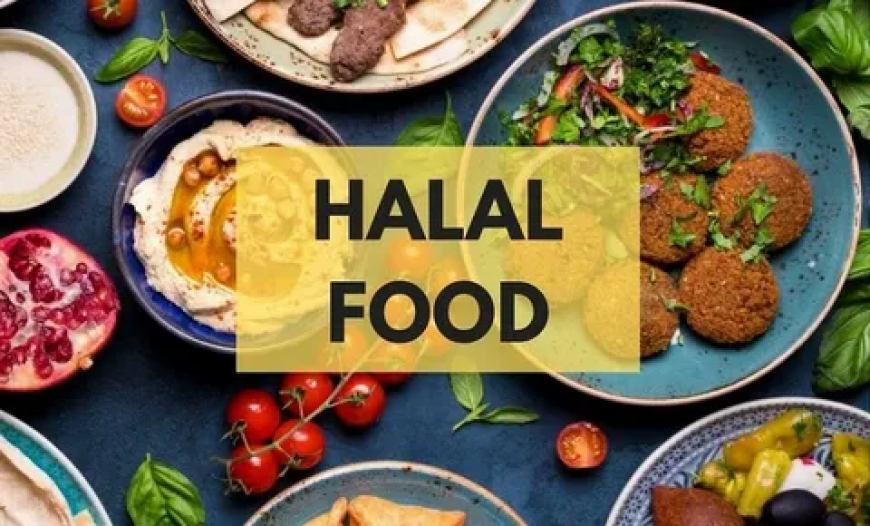Ensuring Integrity: A Deep Dive into Halal Food Certification
For food businesses operating in the United States looking to tap into the Muslim market, securing halal certification in USA is a vital step. The process typically involves several key stages.

Halal certification has become a significant aspect of the food industry, particularly for businesses aiming to cater to the growing Muslim consumer base globally. This process verifies that food products and their production methods adhere to Islamic dietary laws, ensuring they are permissible for consumption by Muslims. From farm to fork, halal certification involves a meticulous examination of ingredients, processing techniques, and handling procedures.
The Importance and Scope of Halal Food Certification
Halal food certification is more than just a label; it represents a commitment to religious and ethical standards in food production. It assures Muslim consumers that the food they purchase has been prepared according to Sharia law. This encompasses not only the types of ingredients used (for instance, avoiding pork and alcohol) but also the methods of slaughtering animals, the cleanliness of production facilities, and the segregation of halal and non-halal products to prevent cross-contamination. The scope of halal certification extends across various sectors of the food industry, including meat and poultry, processed foods, dairy products, beverages, and even food additives and packaging materials. As the Muslim population continues to grow and their purchasing power increases, the demand for certified halal products is steadily rising, making halal certification a crucial market access requirement in many regions.
Obtaining Halal Certification in USA: A Step-by-Step Overview
For food businesses operating in the United States looking to tap into the Muslim market, securing halal certification in USA is a vital step. The process typically involves several key stages. First, a business needs to identify a reputable Halal Certification Agency. These agencies specialize in auditing and certifying food products and facilities according to recognized halal standards. Once an agency is selected, the business submits an application detailing its products, ingredients, and production processes. This is followed by a thorough audit of the facility by the certification agency's qualified personnel. The auditors examine everything from the sourcing of raw materials to the cleaning and sanitation procedures to ensure compliance with halal requirements. If the audit is successful and all criteria are met, the Halal Certification Agency will issue a halal certificate for the specific products or the entire facility. Regular inspections and renewals are usually required to maintain the certification's validity, ensuring ongoing adherence to halal standards.
Key Considerations When Choosing Halal Certification Services
Selecting the right halal certification services is crucial for businesses seeking credibility and market acceptance. Several factors should be taken into account during this decision-making process. The reputation and recognition of the Halal Certification Agency are paramount. Opting for an agency that is well-respected and accredited by relevant international bodies can significantly enhance the marketability of certified products, especially for export purposes. The scope of the agency's certification services is another important consideration. Some agencies specialize in particular food categories, while others offer broader coverage. Businesses should choose an agency whose expertise aligns with their product range. Cost and turnaround time for certification can also vary between agencies, so obtaining quotes and understanding the certification timeline is advisable. Furthermore, the agency's understanding of international halal standards is vital for businesses with global aspirations.
Navigating International Halal Certification Standards
For companies looking to export their products to Muslim-majority countries or cater to Muslim consumers worldwide, understanding international halal certification standards is essential. While the fundamental principles of halal remain consistent, specific requirements and accreditation bodies can differ between countries and regions. For instance, countries like Malaysia and Indonesia have their own stringent halal standards and accreditation processes. The Standards and Metrology Institute for Islamic Countries (SMIIC) is working towards harmonizing halal standards globally, but variations still exist. Businesses aiming for international markets may need to obtain multiple certifications from recognized bodies in their target regions. This underscores the importance of choosing a Halal Certification Agency with a strong understanding of diverse international requirements and affiliations with globally recognized halal authorities.
The Role of a Reputable Halal Certification Agency
A reputable Halal Certification Agency acts as a trusted third-party auditor, providing assurance to consumers and businesses alike regarding the halal status of products and facilities. These agencies play a vital role in upholding the integrity of the halal market by establishing clear standards, conducting thorough inspections, and issuing credible certifications. They employ knowledgeable auditors who are well-versed in Islamic dietary laws and food safety regulations.
Beyond the initial certification, these agencies often conduct ongoing surveillance and audits to ensure continued compliance. They also serve as a resource for businesses seeking guidance on halal requirements and best practices. Choosing a well-established and recognized Halal Certification Agency is an investment in building consumer confidence and accessing the growing global halal market.
Halal Certification for Restaurant Operations: Ensuring Customer Trust
Halal certification for restaurant operations presents a unique set of considerations. Unlike packaged food products, restaurants need to demonstrate halal compliance across their entire food preparation process, from sourcing ingredients to cooking and serving. This involves ensuring that all meat and poultry are sourced from certified halal suppliers, that no pork or alcohol is used in any dishes or beverages, and that kitchen equipment and utensils are segregated to prevent cross-contamination. Staff training on halal food handling practices is also a critical aspect.
Restaurants seeking halal certification typically undergo rigorous inspections of their kitchens, storage areas, and menus by a Halal Certification Agency. Obtaining and displaying halal certification can significantly build trust and attract Muslim customers who seek assurance that the food served aligns with their religious beliefs. Transparency in sourcing and preparation methods is key to maintaining the integrity of halal certification in the restaurant sector.
Read more exciting news blog on madrasphysicaltherapy.com

 Clark
Clark